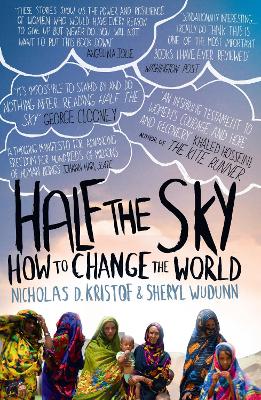Reviewed by empressbrooke on
I've noticed that some of the negative reviews of this book fall into the "white man's burden" category. However, I thought that this criticism ignored the running theme that most of the successes discussed in the book were grassroots efforts lead by local women and organizations who understood firsthand what they needed and what wouldn't work. The authors pointed out that Western organizations that want to help would be most successful in partnering with local people. They also highlighted multiple incidents where Western aid failed and explored why - with the answer usually being outsider ignorance of the culture or of the realities of poverty. They did mention that Western influence (a "treetop approach" as opposed to a "grassroots approach") was successful when it came to medical improvements, such as combating malaria, because it required scientific research and medical discoveries that local people did not have access to. They also noted that international outrage and punishment towards governments that allowed sexual slavery was very effective in reducing profitability of forced prostitution. However, by and large, the authors again and again pointed to local women being the most successful architects of their own improvements.
My one complaint is that the authors swept the lethality of American domestic violence under the rug in their introduction chapter. They say, "In the wealthy countries of the West, discrimination is usually a matter of unequal pay or underfunded sports teams or unwanted touching from the boss. In contrast, in much of the world discrimination is lethal." Later in the book, they emphasize that aid groups undermine themselves when they overstate or exaggerate in order to win more funding. They ought to have applied this admonishment to themselves as well - in America and other Western countries, women face violence, rape, and death from men in uncomfortably large numbers as well. While the countries that the book discusses certainly face these problems at a very alarming rate, America isn't some sparkly, female-friendly country where women merely worry about underfunded sports teams. The authors would not have hurt their message if they acknowledged that Western women are not safe from violence either but that their focus for the book was going to be on other parts of the world.
Reading updates
- Started reading
- 12 May, 2013: Finished reading
- 12 May, 2013: Reviewed
